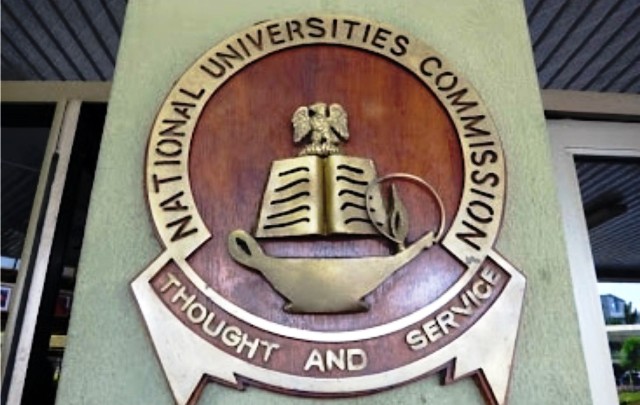Opinion
Who Wants More Varsities?

The National Universities Commission (NUC), sometime ago, revealed its plan to license more private universities in the country. Speaking in Abuja while delivering a lead paper at the maiden edition of the National Summit on Private Universities, the Executive Secretary of NUC, Prof Abubakar Rasheed, said the commission is currently processing 303 new applications for private universities from different parts of the country.
Given the huge population of the country and the high demand for university education, one would have agreed with Rasheed that more universities are needed to cater for these people. But the questions are: what is the state of the previously licensed private universities in the country? How many of them can meet the standard of world class universities? How have these universities impacted on the students and university education generally? From 30 universities in 1996, we now have 170 universities, out of which 79 are private; can we say that the country is now better off educationally?
I mean, we all know what goes on in some of these private universities. Many of them are understaffed. Even the available staffs are not qualified. There are no quality infrastructure and facilities, no adequate funding and many other challenges. I once visited a teaching hospital of a private university owned by a faith based organization and was shocked to find out that the so called teaching hospital was a quasi clinic meant for patients who go to the church for healing. You could see the medical students mingling with the patients and other worshipers in a filthy environment, devoid of all the qualities needed in an academic atmosphere.
The issue of admission is another ball game. Merit is thrown overboard. In their desperation to have more students and make money, any candidate with whatever school certificate result is admitted. It is even said that in some of these private universities, there is nothing like carryover or repeating. They collect huge sums of money as fees and are compelled to push the students through, whether they merit it or not. So just like the public universities, one can buy his way into and through the universities. The problem of corruption and other anomalies in the public universities which many thought would be corrected by the private universities have engulfed them as well.
The most worrisome thing is that nobody seems to care about how these universities are run and what goes on there. Parents on the other hand keep pushing their children. They buy school certificates for them, buy university admission for them and are ready to bribe their children and wards’ way through the university all in a bid to get “best results”.
Is the job of NUC therefore only to issue licences to any group or individual whose pockets are heavy enough to establish a university? What about regulating the activities of these institutions and ensuring that universal best practices obtain there, which will translate to better products? What about setting limits to school fees and other fees charged by these citadels of learning so that parents and guardians, who in some cases contributed to the establishment of the schools are not reaped off?
In the aforementioned speech, the NUC Secretary disclosed that most of the private universities were still unable to fulfill their admission quotas as they admit barely six percent of the total university admission in the country per session. He stated the obvious, which is, that the high fees charged by these institutions is a major reason for lack of patronage of these universities. Knowing this, what has the commission done to address it? Besides, how logical is it to licences more universities when the existing ones are virtually empty?
One, therefore, thinks that NUC should exercise some constraints in the issuance of licenses for private universities else they will be balkanized just like private primary and secondary schools. Efforts should rather be made to raise the standard of the existing universities, both public and private. NUC, the Federal Ministry of Education and other relevant bodies should see to it that the universities we have in the country are institutions to reckon with. Is it not better to have a few world-class universities than to have hundreds of them that are worthless? They should look into the curricula of our universities so as to ensure that these institutions produce all-round qualified graduates, equipped with sufficient skills to fit into today’s technology driven world instead of the hollow graduates we have today. It is a known fact there in Nigeria today, employment opportunities are scarcely there. Thousands of graduates churned out of our universities yearly roam the streets daily searching for job. So a well designed curriculum that will equip the students to stand on their own upon graduation might be the best way out.
Most importantly, it is high time Nigeria de-emphasized paper qualification and university education for every Tom, Dick and Harry. Let us copy from other countries where a selected few go to the university while others go into other fields of life, in accordance with their talents and capabilities.
Calista Ezeaku
Opinion
Empowering Youth Through Agriculture

Opinion
Of Protests And Need For Dialogue

Opinion
Tackling Noise Pollution in Nigeria

-

 Politics4 days ago
Politics4 days agoPFN Rejects Call For INEC Chairman’s Removal Over Genocide Comments
-

 Rivers4 days ago
Rivers4 days agoFasthire, PHCCIMA, CIPM Host CareerFest 2026 In PH
-

 Sports4 days ago
Sports4 days agoEnekwechi wins Orlen Cup in season opener
-

 Politics4 days ago
Politics4 days agoHoodlums Disrupt LP-ADC Defection Event In Lagos
-

 Sports4 days ago
Sports4 days agoSimba open Nwabali talks
-

 Sports4 days ago
Sports4 days agoFalconets, Senegalese Lionesses arrive Ibadan for qualifier
-

 Politics4 days ago
Politics4 days agoRemoval From INEC’s Portal, Abure-Led LP Faction Mulls Legal Action
-

 Niger Delta4 days ago
Niger Delta4 days agoTinubu, Jonathan, Diri Pay Last Respect To Ewhrudjakpo

